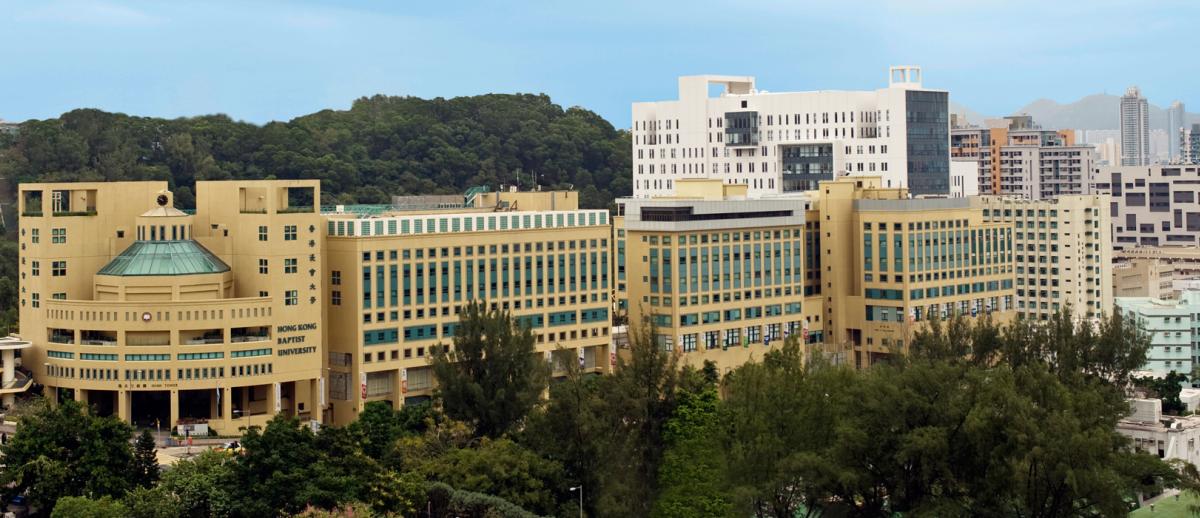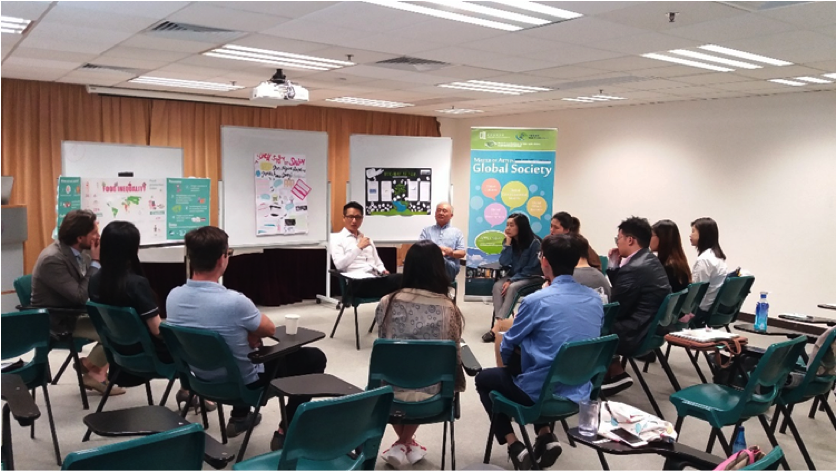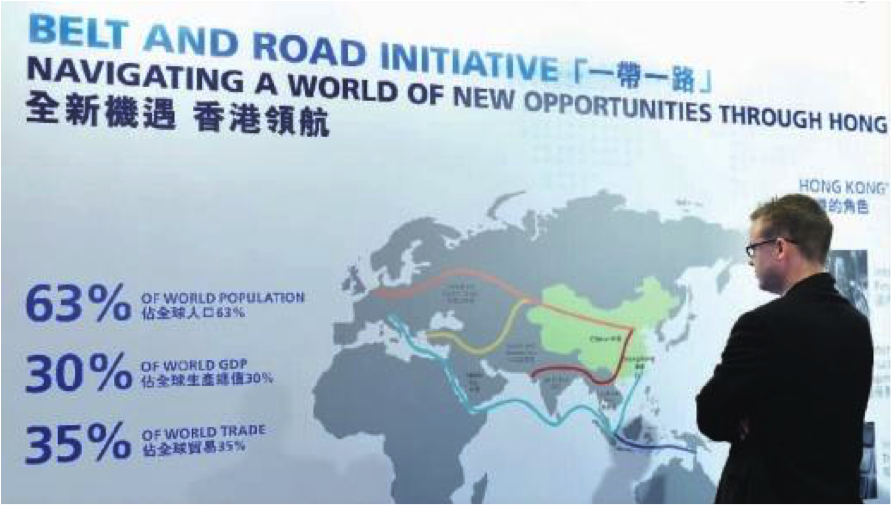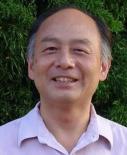Ethics, Pedagogy and Praxis in “Asia’s World City”
archive


Ethics, Pedagogy and Praxis in “Asia’s World City”
When understood in common global terms many elements of today’s society—including inequality, climate change, and global migration—involve ethical and moral dilemmas. So what place does ethics have in Global Studies (GS)? Our brief essay contributes to this keen debate about the interplay of GS and ethics by using the specific case study of the “Masters of Arts in Global Society” (MAGS) program at the Hong Kong Baptist University (HKBU). After introducing two ways in which ethics is important in GS we describe how and why we take a praxis-based approach to empower students in ethical ways.
Ethics and Global Studies
Ethics are an important component of GS in at least two ways. While questions of ethics are questions of social interdependence (for example, how am I responsible to my neighbor?), GS has suggested that these interdependencies are scaled. That is, its critique of methodological nationalism—the worldview that re-assured us we could divide complex reality into national boxes and create nationally-defined rules and institutions to manage these interdependent relationships with each other—problematizes the national as being the scale at which responsibilities and rights can be managed. And, in accenting the global it also admits an increased ethical burden, at least to the extent that members of global society accept the view that they share a single planetary home that is marked by inequality. GS scholarship thus raises the question of how ethics are being re-scaled.
Moreover, GS also suggests that ethical, moral, and normative structures affect how the world works and how uneven power relations arise and persist between individuals and groups in global society. For example, we select which representations of the world we believe and act on (from climate change to mass migration, global recession, and global re-balancing) and which interventions are legitimate (including direct action, citizen science, liberalism, collective democracy, etc). GS draws attention to the politics of knowledge and the affective ways in which participation unfolds. These may or may not be “fact-based” but they are nonetheless influential and constitutive of our contemporary global society.
In sum, the re-scaling of ethics is linked to the politics of knowledge and participation through affective connections. As such, an assumption that the classroom is a neutral space or platform from which global society can be observed seems, to us, untenable. That is, whatever the view is, it is always the view from somewhere. How, then, to design a GS program fit with ethical purpose?
An ethics-orienting praxis
MAGS at Hong Kong Baptist University is a one-year graduate program inspired by GS that approaches ethics through praxis. While praxis generically considers how knowledge arises through experience, reflection, and action, we seek to empower graduates with an ethics-orienting praxis that is about “deepening knowledge on and engagement with processes constituting the interdependence of our emerging society through the sayings, doings, experiences, and reflections of our everyday lives.” The program reflects this praxis in five ways.
First, we approach global society through a relational ontology that recognizes re-scaling as an integral part of the politics of knowledge and the reproduction of interdependence, power, and inequality. We avoid assuming a priori global, national, regional, local, and family scales or registers of social, political, or spatial legitimacy.1 Course materials look to the sayings and doings of everyday life to study how scalar politics arise and what implications for power they have.
Second, we adopt the trans-disciplinarity of GS to assemble a respectful and synthetic account of global processes from multiple perspectives, while stressing diversity. As a collaboration between seven discipline-based departments from the Faculty of Social Sciences and Arts and a research institute set up to study to East-West relations, MAGS begins from a position of respect for different canons of knowledge. For example, the required course “Globalizations” critiques accounts of total capitalism and pays close attention to historic and geographic records showing neither convergence to a single global system, nor divergence to an unordered set of systems, but instead processes of convergence and divergence.2 The course discusses diverse epochs of globalization from the Islamic-Arabian-led globalization of the 6th Century onwards.
the re-scaling of ethics is linked to the politics of knowledge and participation through affective connections. As such, an assumption that the classroom is a neutral space or platform from which global society can be observed seems, to us, untenable.
Third, to increase students’ confidence with respect to the fluid, dynamic, and uncertain professional worlds through which they will eventually move, we use empirically rich case-studies where possible. These preserve the integrity and complexity of global society without patronizing students with over-simplistic or binary narratives. For example, many courses focus on so-called “wicked problems.” As Levin et al (2012) and others note, these may involve overwhelming uncertainty, show how solving one problem simply raises another problem, show non-linear progress and uncertain time horizons for resolution, have a sense of urgency and imminence, point out the complex involvement of many parties including some who may have been to blame for problems but who must now solve the issue, and ask us to consider how we can constrain our future collective selves for some common good.3
Fourth, we promote opportunities for affective connection. Students are asked to co-create knowledge and reflect on their role in the journey of knowledge production. The required course “Debating Global Society” is a student-led opportunity for knowledge co-production through debates that get personal and affective. As the learning experience of individual students is deeply dependent on others, the stakes are raised around negotiating difference and positionality. The high proportion of “class” time devoted to facilitated discussion provides a safe platform through which participants can negotiate changing positionalities.

Facilitated discussion in “Debating Global Society.” Photo credit: the authors
MAGS -- in Hong Kong, in China
Our ethics-orienting praxis lends distinction to MAGS in China. For now, the strength of enrollments and employability suggests the orientation works. Partly, the design reflects the emergence of Global China. This has made urgent broader discussions of multi-polarity and the assumption that western/capitalist morality is the singular script of legitimacy. For example, China’s One Belt One Road (OBOR) project combines and re-layers empires, civilizations, and networks in new constellations transcending limp concepts such as north/south and east/west, and insinuates a new ethics of interdependence with its ethos of “win-win” that reworks Pareto logic at the heart of traditional thinking. The program design also reflects the precarious realities that many of our students experience in Hong Kong. Here, colonial/national/local registers and scales have lost legitimacy among different groups such that the city is a palimpsest of modes of colonial, faith-based, liberal, and collectivist narratives. SARS and Asian Financial Crisis, and their discursive framings, fanned distinctly neoliberal winds of change across Hong Kong in the early 2000s, and ignited increased competition between local universities for students. Fueled by an almost nostalgic refrain to be “Asia’s world city,” HKBU was the first of three local universities to introduce a GS-inspired program (HKBU 2014, Chinese University 2015, Education University 2016). Thus, the distinctiveness of MAGS also comes down to HKBU’s own academic journey. Since its founding in 1956 as a Baptist College there had been a strong area studies landscape at the university, but one organized in silos concerned with language, language training, and retrocession. With competition driving collaboration, it was the university’s complex but resilient commitment to “whole person education” (seeking to blend Christianity and Confucianism, localism and nationalism, individualism and collectivism) that enabled the ethical turn.

Exhibition of “Belt and Road Initiative” in Hong Kong, July 2017. Photo credit: the authors
Challenges for an ethics-orienting program
MAGS, for now, enjoys student, staff, and institutional support. Our approach has, of course, raised questions and productive reflection. For example, what we could call the “open classroom,” which assumes the co-creation of knowledge, is subject to a kind of paradox: the more you open access, the harder it can be to establish a common language and starting point for dialogue. We think about the equality of those involved—is the process even, in that all voices are equally valid, or uneven, with some having more to contribute on particular issues than others? We are also actively reflecting on how to practice and how to assess praxis. How can we plan a syllabus ahead of time if knowledge is co-created and the framing of issues cannot be a priori assumed but have to be co-constructed? Our goal in addressing these issues is, in some small measure, to contribute to an enlivening of student imaginations and fostering a more informed and participatory citizenry. It is also a response to the complex and interwoven conditions and forces currently affecting our campus, city, region, and world.
1 Mendez, JB and Wolf DL (2007). “Feminizing global research/globalizing feminist research. Methods and practice under globalization.” In SN Hesse-Bier (Ed) Handbook of feminist research. Thousand Oaks: Sage, 651-662.
2 Healy, S. (2014). “The biopolitics of community economies in the era of Anthropocene.” Journal of Political Ecology 21: 210-221.
3 Levin, K., Cashore, B., Bernstein, S., & Auld, G. (2012). “Overcoming the tragedy of super wicked problems: constraining our future selves to ameliorate global climate change.” Policy Sciences, 45(2), 123-152.





